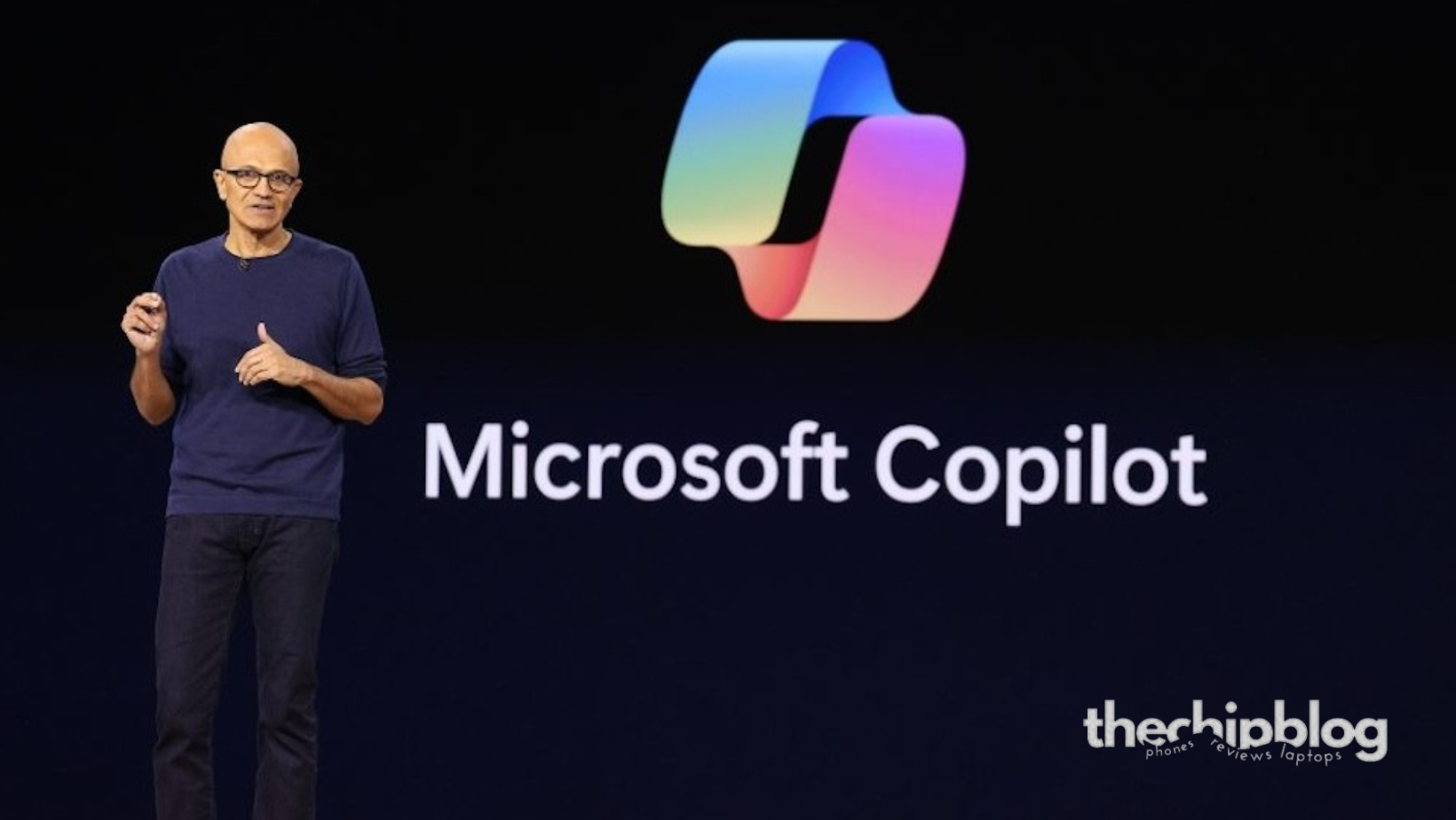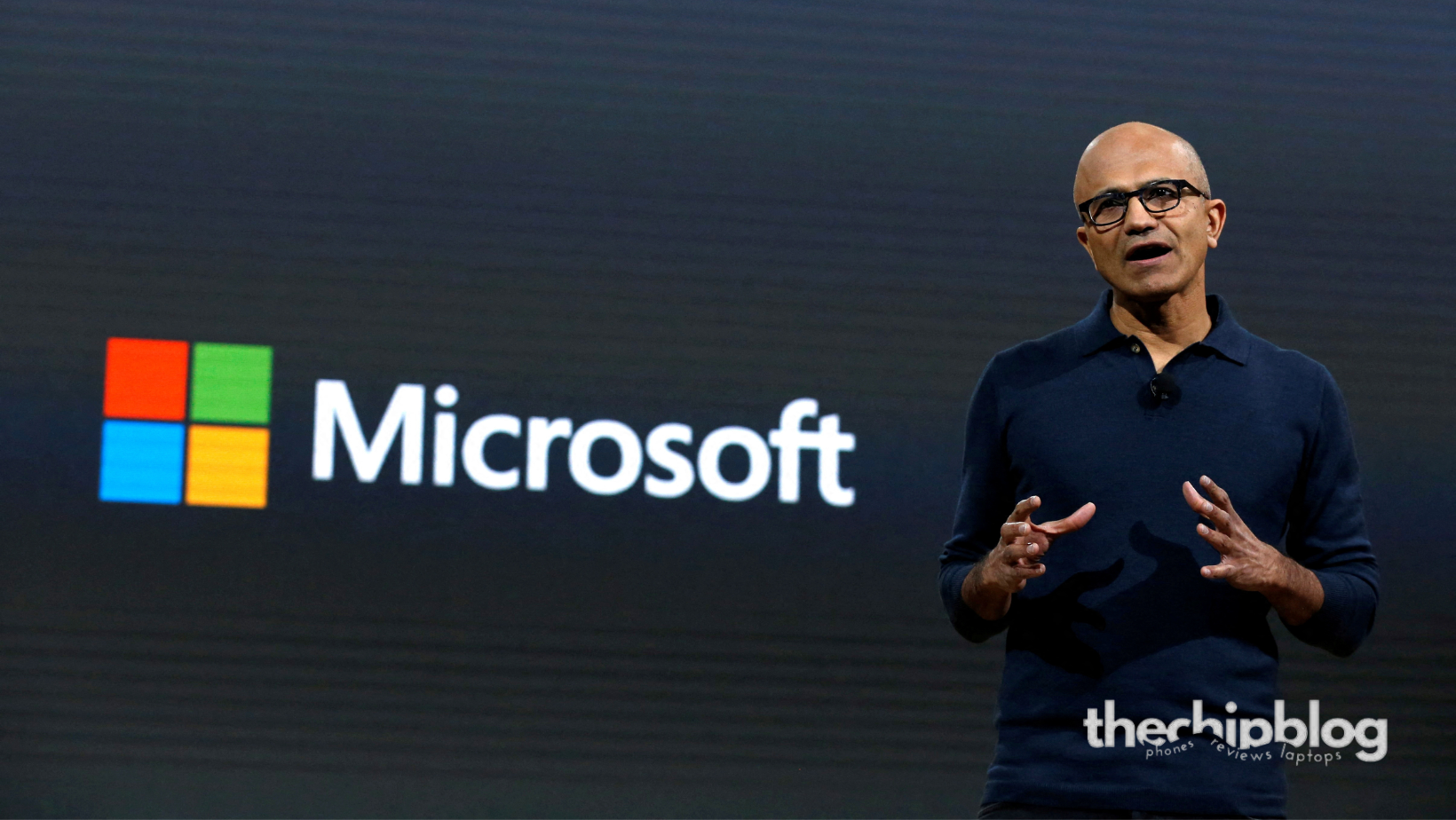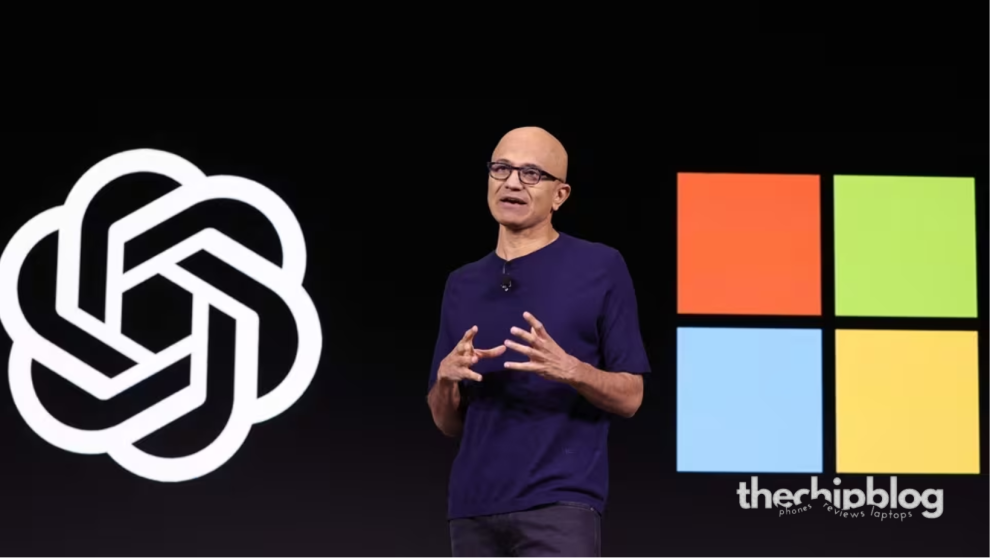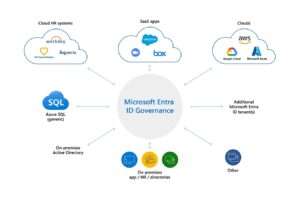Microsoft has acquired OpenAI – the pioneering artificial intelligence research company behind ChatGPT, DALL-E, and other bleeding-edge AI models. This historic $100 billion deal is Microsoft’s largest acquisition ever, signaling the staggering importance they place on AI supremacy as the next great technological frontier.
Brace yourselves as we unpack this monumental Microsoft Acquires OpenAI in Landmark 100 Billion Deal from every angle and explore why it could catalyze a tectonic power shift in the world of big tech that reverberates for decades to come. The AI revolution is no longer on the horizon. it’s here, and Microsoft is placing a definitive 100 billion stake in the ground to chart its course.
What is OpenAI and Why is it So Valuable?
Founded in 2015 by tech luminaries like Elon Musk, Sam Altman, and others, OpenAI is a leading artificial intelligence research institute dedicated to developing advanced AI systems with the goal of ensuring their safety and benefiting humanity as a whole.
While many tech giants primarily focus on applied, product-oriented AI – OpenAI explores the cutting edge of artificial general intelligence (AGI) through ambitious “AI research for the benefit of all.” AGI refers to adaptable AI that can perform virtually any task a human can, combining capabilities like reasoning, planning, learning, perception, communication, and more in pursuit of general intelligence.
OpenAI’s breakthroughs include GPT-3 – one of the world’s most advanced language models capable of generating shockingly coherent text across an expansive range of subjects. Their DALL-E technology does equally mind-bending work by generating unique images from simple text descriptions. More recently, ChatGPT exploded into a viral phenomenon for its ability to engage in flowing dialog and complete complex prompts with human-like quality.
As AGI inched closer through these milestones, OpenAI’s team of renowned AI researchers became a precious asset bordering on a modern technological Manhattan Project. Their models’ ability to interpret and generate human-like language, reason about abstract queries, and even explain their own thought processes hinted at an inflection point – the rise of “artifical general intelligence.
With a valuation estimated as high as $29 billion before the acquisition, OpenAI represents the vanguard of an AI revolution Microsoft clearly views as imperative to their own future. Rather than let OpenAI’s innovations potentially power a rival and reap those rewards, Microsoft has opted to double down in a definitive stroke.
What are the Key Details of the $100 Billion Deal?
At a staggering $100 billion valuation, Microsoft’s acquisition of OpenAI is its biggest buyout by far—dwarfing other megadeals like its $26 billion LinkedIn purchase or Bethesda Games for $7.5 billion. Here are some of the key details on this historic transaction:
- $100 billion all-cash transaction, with Microsoft assuming full control and OpenAI becoming a Microsoft subsidiary under its Cloud + AI division.
- Microsoft secures exclusive licensing rights to OpenAI’s models, technologies, and research. This gives them proprietary access to leverage breakthroughs like GPT-3 within their own products and services.
- OpenAI’s renowned AI research team of 375+ PhDs, scientists, and engineers will join Microsoft, including CEO Sam Altman in a senior leadership role reporting directly to Microsoft CEO Satya Nadella.
- Microsoft plans to continue providing free public access to some of OpenAI’s models and tools like earlier GPT versions. However, expect premium capabilities and advanced versions to be monetized under the Microsoft umbrella.
- OpenAI will retain its San Francisco HQ and operate as its own division within Microsoft, with Nadella emphasizing allowing its researchers to continue working toward their mission of ensuring AI benefits humanity.
- To fund the historic price tag, Microsoft raised $60 billion through a bond offering and will finance the remaining $40 billion through a new revolving credit facility and cash on hand.
By doubling down on AI investment and integration, Microsoft is effectively declaring an “AI arms race” where it intends to match or surpass rivals like Google, Meta, and others delivering transformative AI-powered products and services. It’s a calculated gamble – but one Microsoft seemingly views as an existential necessity in the AI era.
What Are Microsoft’s Motivations and AI Ambitions?
While $100 billion is an eye-popping number, Microsoft believes acquiring OpenAI’s pioneering work and capabilities will not only pay dividends but become essential to remaining a dominant tech force into the future. Their motivations are manifold:
Intelligent Cloud Supremacy: Microsoft has spent nearly a decade positioning its Azure cloud as an AI powerhouse through custom hardware, tools, and partnerships. Owning OpenAI allows them to integrate advanced AI natively across Azure’s infrastructure, developer tools, and services – potentially dominating cloud AI deployments.
Accelerate Productivity Software: Just as Microsoft capitalized on the PC revolution with its ubiquitous Office suite, they aim to drive AI adoption within enterprise workflow software and productivity applications like Word, Excel, PowerPoint, and Teams with OpenAI enhancements. Imagine documents and analysis authored by AI assistants at your command.
Power the Next Computing Wave: Beyond productivity, infusing OpenAI’s breakthroughs into Windows, Edge, Bing, and other platforms could spawn the next consumer computing paradigm – one where humans interact with AI-powered interfaces through natural conversations, written prompts, and AI co-pilots enhancing experiences.
Ignite New Business Models: While public access will remain, Microsoft can monetize OpenAI’s sophisticated models across cloud, enterprise, and consumer services – generating new revenue streams. AI assistants, personalized recommendations, predictive analytics, content creation – virtually any application of large language models and training systems becomes commercialization opportunities.
Compete Across Emerging AI Domains: As AI increasingly touches fields like robotics, cybersecurity, medicine, materials science, and more – Microsoft aims to embed OpenAI’s technologies to solidify advantages in these emerging spaces. They’ll have a potent AI platform to build upon.
With OpenAI’s acquisition, Microsoft can propagate that technology’s disruptive ripples across its entire business ecosystem. While a sky-high valuation, they’re betting that AI is rapidly becoming the seminal technological battleground of the digital era – one they cannot afford to cede ground in.
What Challenges Lie Ahead for Microsoft’s AI Bet?
While representing a bold, visionary investment, Microsoft’s mammoth OpenAI acquisition comes with significant challenges and risks they’ll need to navigate adeptly. Here are some potential pitfalls and hurdles looming for their AI ambitions:
Responsible AI Oversight: As AI systems grow more advanced and capable, ensuring they operate ethically, transparently and without harmful bias or detrimental impacts becomes paramount. Questions around data privacy, content moderation, and regulatory compliance will need to be addressed head on as OpenAI’s tech proliferates.
Managing Public Perception: OpenAI’s non-profit roots promoting AI safety and “benefiting humanity” cultivated a positive brand image that monetizing under Microsoft could erode if not handled properly. They’ll need deft public relations to avoid a backlash over “AI profiteering.”
Governance and IP Security: With OpenAI researchers distributed globally, maintaining unified oversight, product roadmaps and preventing intellectual property leaks will be critical – especially given rivals’ intense interest in replicating their work.
Research Continuity: While OpenAI joins a cash-flush Microsoft, it remains to be seen how the integration impacts their research momentum and ability to focus on pure innovation versus product implementation. Preserving their unique AI development culture amidst Microsoft’s massive scale will be challenging.
Talent Retention: OpenAI’s rockstar AI engineers and scientists are now highly valuable free agents should they seek independence or higher salaries elsewhere – like deep-pocketed big tech competitors. Microsoft must incentivize and nurture that irreplaceable talent pool.
Commercial AI Deployment: While state of the art, deploying OpenAI’s advanced models into production environments at scale is an immense technical challenge fraught with obstacles around performance, datacenter infrastructure constraints, power consumption, and real-time AI model orchestration.
Monopoly Concerns: With so much AI prowess consolidated under one roof, there could be regulatory scrutiny and antitrust complaints about Microsoft wielding too much power and control over this critical technology domain.
Competitors Doubling Down: This mega-deal puts rivals like Google, Meta, Apple, Amazon and others firmly on notice that the AI race is intensifying. Expect renewed AI investment and acquisitions by competitors looking to keep Microsoft from running away with a decisive advantage.
No acquisition of this magnitude is without significant integration obstacles. But if Microsoft meets those challenges head on, harnessing OpenAI’s capabilities could enable them to profoundly disrupt entire industries and spearhead the AI-powered future we’re rapidly careening toward.

How Will OpenAI Impact Microsoft’s Products and Services?
While execution risks abound, if successful, the Microsoft Acquires OpenAI in Landmark $100 Billion Deal could prove transformational for the company’s ecosystem and offerings. Here are some of the most significant product impacts we could see in the coming years:
Windows: Microsoft’s ubiquitous desktop OS could become an AI “ambient desktop” with OpenAI models deeply integrated into interfaces, user experiences, and productivity applications like Office 365. Imagine conversationally commanding your PC or using AI word processors.
Azure Cloud: Expect OpenAI AI models like GPT to natively deploy across Azure infrastructure, IoT services, analytics platforms, developer tools, and more. AI-driven Azure services become a powerful differentiator.
Productivity: Word, PowerPoint, Excel, and more could feature AI-powered assistants to co-author content, crunch data, identify insights – intelligently augmenting humans with efficiency superpowers.
Search & Advertising: Bing may finally surpass Google in relevance by leveraging OpenAI’s contextual language understanding to deliver more accurate search results, ad targeting, and commerce enablement.
Consumer Tech: Products like Teams, Surface hardware, HoloLens, Xbox, and more could see intelligent features like multi-modal voice-visual UIs, gaming companions, and conversational digital assistants turbocharged by OpenAI.
Customer/Business Analytics: OpenAI’s models could unlock hyper-personalization by infusing data-driven insights into CRM, ERP, e-commerce, and vertically-specialized Microsoft offerings like healthcare or sustainability solutions.
Developer Tooling & Low-Code: GitHub’s offerings and Visual Studio could gain AI-powered coding, automation, and testing assistants. Low-code tools could rely on OpenAI models to let anyone “describe” applications into existence.
While speculative, the possibilities are vast. Microsoft now has a pioneering AI lab at its disposal to reimagine every service, product, and experience in their arsenal – along with lucrative opportunities to commercialize AI capabilities in revolutionary new ways. Their entire tech stack stands to be elevated and infused with AI superpowers.

How Will This Deal Impact the Tech Industry Landscape?
Microsoft’s seismic $100 billion acquisition of OpenAI instantly recalibrates the balance of power across the tech industry – accelerating the AI arms race to a fever pitch as rivals scramble to gain technical, talent, and market advantages.
Here are some of the most significant ramifications reshaping the industry landscape:
Cloud Wars Heat Up: With Azure gaining privileged access to OpenAI models, Microsoft positions itself as the AI “cloud of clouds.” AWS, Google Cloud, and others now face a heightened urgency to bulk up their respective AI capabilities and offerings.
Enterprise Software Disruption: Much like Microsoft dominated personal and enterprise productivity with Office, embedding AI co-pilots and intelligent workflow processing into their suite poses an existential threat to legacy vendors’ offerings.
Ripple Effect on Hiring and Talent: With top AI researchers now consolidated at Microsoft, competitors like Google, Meta, Amazon, and others face mounting pressure to pay extreme salaries and offer lavish incentives to attract scarce AI talent. Talent bidding wars intensify.
Automation Avalanche: Robust AI models accelerate software automation across sectors. Roles like programmers, content creators, analysts, and data workers may experience whiplash as AI enhances – or supplants – aspects of their workflows, sparking societal debate over AI impact on jobs.
Regulatory Scrutiny & Antitrust Risks: With so much AI capability concentrated under one global tech giant, antitrust regulators may probe Microsoft’s increased market dominance and power over the transformative technology.
Open Source AI Shifts: Will Microsoft maintain OpenAI’s open-source commitments, or increasingly gate advanced models and capabilities behind services? Their stance on democratizing AI will be closely watched.
Acquisition Frenzy: Tech titans from Google and Amazon to emerging upstarts will likely seek their own defensive AI acquisitions to remain competitive. Secondary deals targeting OpenAI talent could materialize.
While the industry quakes from this disruptive ripple, it also underscores the pivotal role AI will play in redefining everything we experience digitally. With the transformative potential of OpenAI’s capabilities now paired with Microsoft’s resources and reach, the deal could represent a “crossing the Rubicon” moment accelerating the AI era into mainstream ubiquity far swifter than imagined.
What Will Be the Societal Impact of Microsoft’s AI Gambit?
While the business landscape shifts are seismic, Microsoft’s OpenAI integration could yield even more profound societal implications extending far beyond their own product ecosystem:
Role of Human vs Machine: As AI handles more knowledge work and creative tasks, important questions arise about what roles humans play in the future workforce alongside increasingly capable AI assistants and collaborative intelligences. Some jobs may disappear to automation while new roles specializing in “human-machine teaming” emerge.
Wealth and Power Concentration: Concentrating so much cutting-edge AI capability under one of the world’s largest corporations raises concerns over equitable access and the benefits/risks of consolidating this power versus a more democratized AI landscape.
“Black Box” Concerns: As inexplicably capable as modern AI is, it remains opaque and can reflect or amplify unwanted biases – provoking calls for more transparency and ethical oversight governing these systems’ inner workings.
Misinformation and Deepfakes: While helpful for content creation, generative AI models like OpenAI’s DALL-E could supercharge misinformation, synthetic media, and deceptive deepfakes that further erode societal trust in what’s real versus synthetic.
Authoritarian AI: Beyond business, nations and regimes could leverage OpenAI’s technology in chilling ways for surveillance, social control, automated censorship, misinformation campaigns, and advanced cyberweapons that infringe human rights.
Existential AI Risks: Though promising AI safety standards, many experts fear a lack of sufficient precautions as artificial general intelligence advances toward “superintelligent” capabilities potentially posing existential risks to humanity itself if not properly aligned.
While these concerns are not unique to Microsoft, their role as a steward for OpenAI’s technology means they could dramatically accelerate these issues reaching mainstream urgency. They’ll face immense pressure to pair AI innovation with responsible guardrails and governance frameworks as unprecedented technological capabilities emerge from this historic acquisition.
Ultimately, while positioning Microsoft as an AI juggernaut, their integration of OpenAI represents a philosophical inflection point on AI’s role in society – one grappling with issues of equity, ethics, privacy, and even defining intelligence itself as the age of ubiquitous human-machine coexistence dawns.
















Add Comment